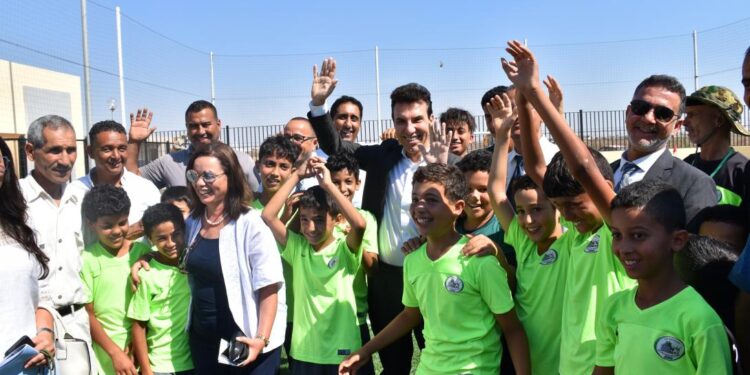In Sfax as elsewhere, so -called “popular” districts are no longer only areas to be rehabilitated, but become strategic spaces for social, urban and economic transformation. Thanks to the partnership between Tunisia and the European Union, innovative projects redefine the contours of urban development.
It is in the renovated streets of Markez Gaddour and Cité Bourguiba, but also on the sports fields recently fitted out in El Hajeb and Thyna, that a new approach of the city is discreetly emerging.
The European Union ambassador to Tunisia, Giuseppe Perrone, on an official visit to Sfax, did not fail to highlight the concrete scope of Tunisian-European cooperation through these visible achievements, carried by the Proville 2 program.
Because behind these infrastructure works, these are deep transformations that take place: new spaces for young people, a reappropriation of places by the inhabitants, collective dynamics that are reactivated … and a message: working -class neighborhoods are not margins to correct, but living centers of urban renewal.
From infrastructure to citizenship
Launched with the support of the European Union, the Proville 2 initiative goes far beyond bitumen or sidewalks. It is based on an integrated vision of urban development, which combines infrastructure, social inclusion, culture and local economy. The targeted districts are treated not as problems to be solved, but as potentials to be revealed.
This philosophy is found in concrete actions carried out in the field: rehabilitation of roads and networks, access to basic services, but also creation of public spaces, support for community projects and support for young people to employment or citizen engagement. It is a question of recreating social ties, enhancing local identities, and bringing out a new urbanity, inclusive and participative.
Results monitoring: the arru method
The urban rehabilitation and renewal agency (ARRU), an ankle worker of these projects, organized an evaluation visit in the districts concerned by the “Generation 1” and “Generation 2” programs of the Rehabilitation and Integration of Residential (PRIQ) project. These programs target so -called priority urban areas, often left with public investment dynamics.
The approach is twofold: technical interventions (improvement of housing, redevelopment of public spaces, roads, lighting) and social actions in the field (urban mediation, awareness, professional integration). This model aims to reduce territorial inequalities while promoting social cohesion. An ambition made possible by European support, but also by the growing involvement of local authorities and the inhabitants themselves.
An inclusive city at hand?
This strategic partnership between Tunisia and the European Union draws the contours of a new urban contract, based on dignity, social justice and participation. It also reflects a conviction: the future of cities is played out in their margins. This is where solidarity, space uses, and democratic practices can be reinvented.
Through this cooperation, Sfax becomes a laboratory of the possible, a field of experimentation for a more human and resilient urban factory. And if the experience was to become widespread, the whole Tunisian urban landscape could be transformed – from below, but permanently.








